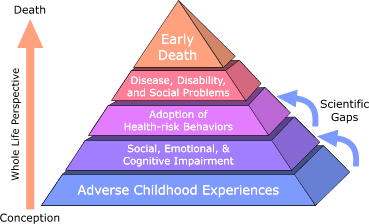
Can our minds influence our bodies?
Do I hear you exclaiming, “Well – duh!”
I couldn’t agree more – it’s been decades since science first began to probe the mind-body connection. Today, nearly everyone agrees that thoughts and feelings can profoundly affect our physical health.

Let’s look at some of the findings.
- Research on the now-famous placebo effect showed that when patients receiving a nonactive substance who are told they had received a legitimate medicine, they responded as though they had received the medicine.
- Patients with viral conditions (which absolutely don’t respond to antibiotics) frequently improve when given antibiotics if they firmly believe it will help their recovery.
- Researchers found that patients with knee pain improved whether they received a pseudo-surgery or an actual surgery.
- Patients who believe they’ll be harmed by a treatment, or that they will die from a condition, experience ill effects and die on schedule.
There’s no longer any doubt: the mind powerfully affects our bodies.
Now, let’s look at the flip side. Today, there’s an uptick of interest in how the body influences the mind.
Most women today are aware that an imbalance of estrogen, progesterone, and testosterone can wreak havoc with their emotions. In fact, premenstrual dysmorphic disorder – think PMS to the Nth degree – is marked by crushingly debilitating moods in response to hormonal levels at the end of the menstrual cycle.
In menopause, crashing levels of estrogen and progesterone can cause mood swings, anxiety, or depression. (I recently saw a bumper sticker: “I’m menopausal and I’ve got a gun!”)
People are less aware of how microbes can contribute to or even cause neuropsychiatric conditions. The gut and brain are in constant communication. Imbalances in the gut microbiome are now a known treatable cause of a number of mental health conditions.
These imbalances have been implicated in autism, Alzheimers, and schizophrenia. Fortunately, specific probiotics have been shown to decrease anxiety and improve problem-solving. Animal studies have demonstrated that fecal transplants (transferring fecal matter from one animal to another) can affect the recipient animal’s behavior.

Infectious diseases are yet another cause of mental and behavioral disturbances. Lyme co-infections such as Bartonella, Babesiosis, and Brucellosis cause a host of psychiatric symptoms. Borrelia is found in the brain plaques in Alzheimers patients.
Fungal infections are implicated in neurologic conditions. Children with PANDAS (pediatric autoimmune neuropsychiatric disorders associated with strep) may exhibit sudden bizarre behavioral syndromes after a streptococcal infection. Although psychiatric meds are routinely prescribed in these situations, the symptoms cannot be permanently relieved until the underlying infection is treated.
Autoimmune disturbances and inflammation from any number of sources can radically alter neuropsychiatric status, impacting cognition and neuroplasticity, and even causing neurodegeneration and psychiatric disorders.
The book Brain on Fire relates the horrifying story of how autoimmune disturbances destroyed the normal behavior patterns of a previously well-adjusted individual.
Conclusion. Our minds are highly sensitive to, and can be disturbed by any number of bodily processes. All the counseling in the world, and all the prescriptions of neuropsychiatric drugs, though they can be invaluable and even life-saving, cannot permanently heal the mind if the underlying bodily imbalances aren’t addressed. In fact, addressing these issues is now considered to be a promising new frontier for psychiatry.
Read more about Dr. Connie’s work HERE
